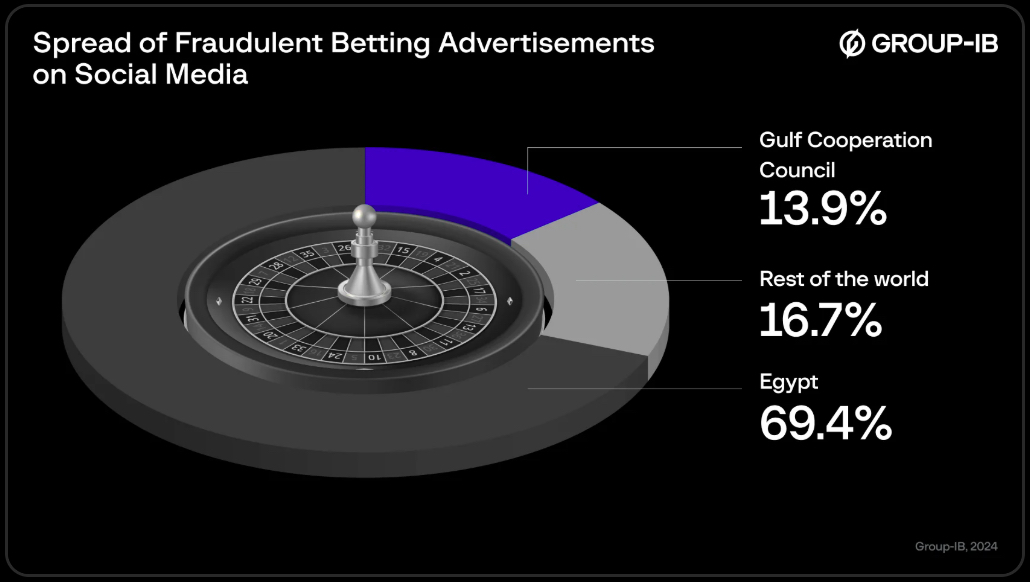In the fast-evolving landscape of digital transformation, social media has become a double-edged sword. While it empowers connectivity and innovation, it also harbors dangers like the alarming scam campaign uncovered by Group-IB. This article delves into the intricacies of the scam operation, leveraging fake betting game advertisements to defraud individuals and businesses. By dissecting Group-IB’s findings, we aim to educate readers on how to stay safe in the digital realm.
The Rise of Fake Betting Scam Campaigns
The recent investigation by Group-IB, a global leader in cybersecurity, revealed an insidious scam operation that has permeated social media platforms across the Middle East. Over 500 deceptive advertisements and 1,377 malicious websites have been identified, showcasing the alarming scale of this threat. With victims reporting losses exceeding $10,000, the impact of this campaign underscores the urgent need for heightened awareness and security measures.

The Rise of Fake Betting Scam Campaigns
How These Scams Work
Fake betting game ads employ sophisticated strategies to deceive users. These include:
- AI-Generated Voices: Scammers utilize AI to produce localized voices, making the ads appear authentic to users across different regions.
- Social Media Algorithms: Advanced targeting features allow fraudsters to reach specific demographics, enhancing the effectiveness of their schemes.
- Fraudulent Applications: Users are enticed to sideload apps via third-party sites, bypassing the security protocols of official app stores.
The combination of these tactics creates a potent threat, leveraging the trust and reach of social media platforms to exploit unsuspecting victims.
Red Flags to Watch For
Understanding the warning signs can significantly reduce the risk of falling victim to these scams. Key indicators include:
- Promises of easy money with minimal effort.
- Ads featuring overly positive reviews and testimonials.
- Requests to download apps from unverified sources.
By staying vigilant and skeptical, users can protect themselves from these predatory schemes.

The Role of AI in Scam Campaigns
The Role of AI in Scam Campaigns
AI technologies have revolutionized industries, but they also provide tools for malicious actors. In this case, AI-generated voices lend credibility to scam ads, while automated algorithms facilitate the creation of fake reviews. Recognizing the dual-edged nature of AI is critical for combating such threats.
Group-IB’s Recommendations
To safeguard against these scams, Group-IB advises:
- Download Apps From Official Sources: Use trusted app stores like Google Play or Apple’s App Store.
- Be Wary of Unrealistic Promises: If it sounds too good to be true, it probably is.
- Verify App Authenticity: Cross-check with reputable banking or business channels before engaging.
Such proactive steps are instrumental in maintaining digital security.
Impact on Businesses and Individuals
The ramifications of these scams extend beyond financial loss. They erode trust, compromise personal data, and harm reputations. Businesses must fortify their digital presence to mitigate these risks, ensuring consumer trust and operational continuity.
Group-IB’s revelation of this extensive scam campaign serves as a stark reminder of the vulnerabilities inherent in our interconnected world. By combining advanced cybersecurity measures with informed vigilance, individuals and businesses can navigate the digital landscape safely.

